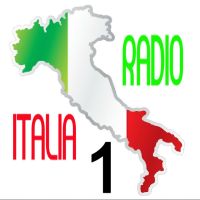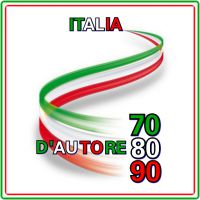Italian music is a rich and diverse tapestry that reflects the country's vast cultural heritage, spanning from ancient folk traditions to contemporary electronic beats. At its core, Italian music embodies passion, emotion, and a deep connection to the human experience, making it one of the most expressive and evocative genres in the world.
The roots of Italian music can be traced back to ancient times, with early forms of musical expression found in the works of Roman poets and philosophers. As the centuries passed, various regional traditions emerged, each contributing unique elements to the broader landscape of Italian music. Folk music, in particular, played a crucial role in shaping the genre's identity, with songs that celebrated love, nature, work, and religious fervor.
One of the most iconic forms of traditional Italian music is the tarantella, a lively dance accompanied by energetic instrumental music. Originating from Southern Italy, particularly in regions like Apulia and Calabria, the tarantella features rapid tempos, intricate rhythms, and a blend of instruments such as tambourines, accordions, and violins. This vibrant musical style has been passed down through generations, preserving the cultural heritage of rural communities and providing a joyful outlet for social gatherings.
In addition to folk music, Italian opera stands as one of the most influential and revered forms of classical music. Emerging in the late 16th century, opera combines dramatic storytelling with powerful vocal performances and orchestral accompaniment. Composers like Claudio Monteverdi, Giacomo Puccini, and Giuseppe Verdi have left an indelible mark on the genre, creating timeless masterpieces that continue to captivate audiences worldwide. Operas often explore themes of love, betrayal, and tragedy, showcasing the depth of human emotion through soaring arias and intricate ensemble pieces.
The 20th century saw the rise of various Italian musical movements, including the emergence of cantautori, or singer-songwriters. Artists like Fabrizio De André, Francesco Guccini, and Lucio Dalla gained popularity for their poetic lyrics and introspective melodies, addressing social issues and personal experiences with a profound sense of authenticity. This period also witnessed the growth of Italian pop music, with acts like Mina, Adriano Celentano, and Eros Ramazzotti achieving international success.
In recent decades, Italian electronic music has gained global recognition, blending cutting-edge production techniques with the country's rich musical heritage. Producers such as Giorgio Moroder, who pioneered the disco sound in the 1970s, and more contemporary artists like Marco Carola and Tale Of Us have pushed the boundaries of electronic music, creating innovative tracks that resonate on dance floors around the world.
Italian hip-hop has also emerged as a significant force within the genre, with artists like Fabri Fibra, J-Ax, and Marracash gaining prominence for their lyrical prowess and socially conscious themes. This sub-genre reflects the diverse experiences of Italian youth, addressing issues such as immigration, social inequality, and cultural identity.
In addition to these well-known forms, Italian music encompasses a wide range of other styles, including jazz, rock, and experimental genres. Artists like Paolo Conte, Franco Battiato, and Nick Cave have drawn inspiration from Italian musical traditions, incorporating elements into their unique soundscapes. This eclectic mix of influences highlights the genre's adaptability and its ability to evolve with the times.
Italian music festivals play a crucial role in showcasing the country's diverse talent and fostering a sense of community among fans. Events like the Sanremo Music Festival, one of the oldest and most prestigious in Europe, provide a platform for both established and emerging artists to perform and compete. Other notable festivals include Lucca Summer Festival, which features a mix of international and Italian acts across various genres, and the Umbria Jazz Festival, celebrating the rich history of jazz music.
The influence of Italian music extends far beyond its borders, inspiring artists and audiences worldwide. From the operatic arias of Verdi to the electronic beats of Giorgio Moroder, Italian music continues to captivate with its emotional depth and artistic innovation. Whether through traditional folk melodies or cutting-edge electronic productions, this genre remains a testament to Italy's enduring cultural legacy and its ability to inspire and move listeners across generations.
 1.2k
Italy, Carpi Italian 128 kbps MP3
1.2k
Italy, Carpi Italian 128 kbps MP3 1.2k
Italy, Rome Italian
1.2k
Italy, Rome Italian






 1
1

































